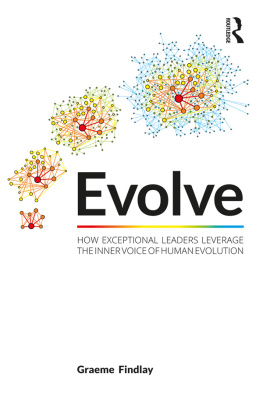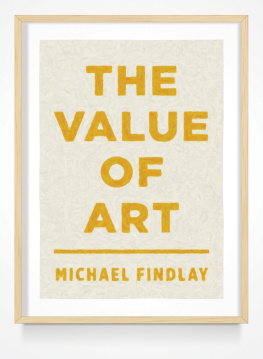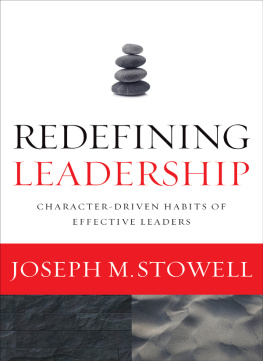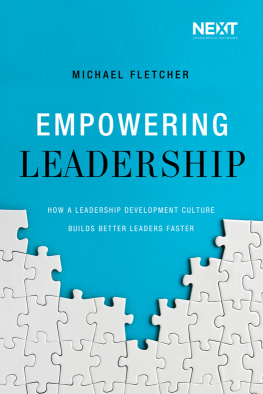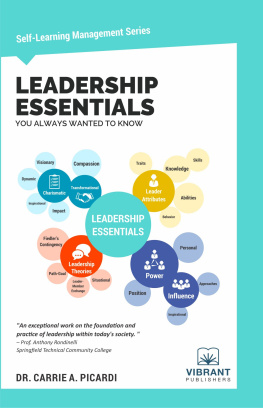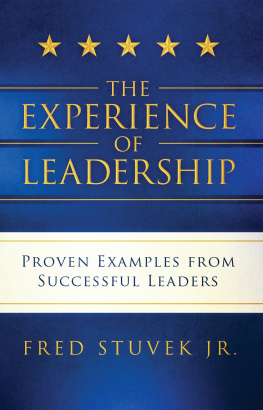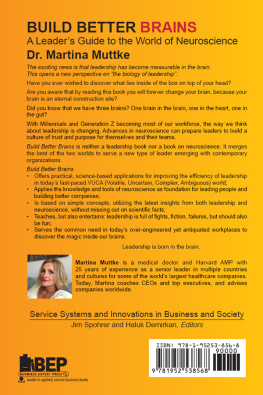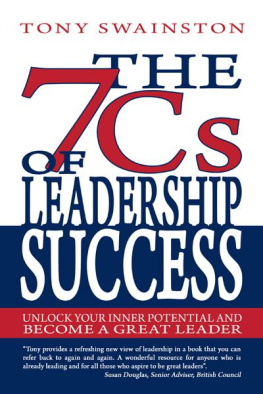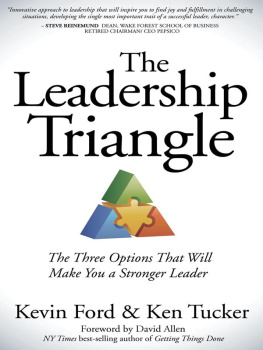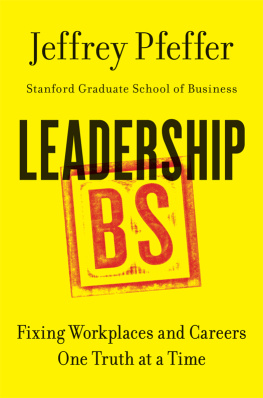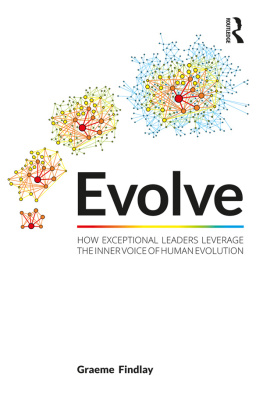Evolve
Leaders work hard to develop strong leadership capabilities in todays modern organizations, for the benefit of their teams and for their own careers. But, sometimes conventional leadership theory fails to explain why our efforts fail to make an impact, and arguably are becoming less and less successful. Why would this be?
The answer lies in our evolutionary history. Leadership is integral to our success and evolution as a species, as larger better functioning groups out-survived fragmented groups that did not benefit from strong leadership. Leader-follower relationships are, therefore, deeply ingrained in our brains, our instincts and our behaviour. But, our modern world, with its technology, connectedness and complexity, has evolved much faster than our brainsand our leader-follower behaviour has not caught up.
Evolve charts the fascinating development of our evolutionary history to provide a profound understanding of human behaviour around leadership. It also establishes a framework for the modes of leadership that shape the world today. Through case studies and real-world examples, you will gain powerful insights into the nature of leadership now. More importantly, these insights inform the actions you can take in your own life to enable you to become a more aware, mindful, impactful, and successful leader.
Graeme Findlay is an Associate Fellow at the University of Oxford Sad Business School on the faculty of their Executive Education programs. He consults to industry as an executive coach and change management advisor. Prior to specialising in leadership development, Graeme held executive management roles and was accountable for delivering operational transformations and performance turnarounds on world-scale mega-projects. His passion for high performance teams led to academic research at Oxford University and HEC Paris. Graeme holds a Masters degree in Consulting and Coaching for Change.
Evolve
How Exceptional Leaders Leverage the Inner Voice of Human Evolution
Graeme Findlay

First published 2019
by Routledge
2 Park Square, Milton Park, Abingdon, Oxon OX14 4RN
and by Routledge
711 Third Avenue, New York, NY 10017
Routledge is an imprint of the Taylor & Francis Group, an informa business
2019 Graeme Findlay
The right of Graeme Findlay to be identified as author of this work has been asserted by him in accordance with sections 77 and 78 of the Copyright, Designs and Patents Act 1988.
All rights reserved. No part of this book may be reprinted or reproduced or utilised in any form or by any electronic, mechanical, or other means, now known or hereafter invented, including photocopying and recording, or in any information storage or retrieval system, without permission in writing from the publishers.
Trademark notice: Product or corporate names may be trademarks or registered trademarks, and are used only for identification and explanation without intent to infringe.
British Library Cataloguing-in-Publication Data
A catalogue record for this book is available from the British Library
Library of Congress Cataloging-in-Publication Data
A catalog record has been requested for this book
ISBN: 978-1-138-59100-4 (hbk)
ISBN: 978-0-429-49073-6 (ebk)
Typeset in Optima
by Apex CoVantage, LLC
For Alison
Contents
My heartfelt thanks goes out to a number of people, without whom this project would not have come to fruition;
Sue Dopson, associate dean of faculty at Oxford University Sad Business School for her guidance with my research;
Beth Findlay, my daughter and research assistant, not only for her research but for her ideas and direction;
Nick Van Buuren for his editorial assistance;
Soon-Joo Gog, Nicole Hoenig, Mauro Locarnini, Renaud Prodel, Lone Ronberg, Martine Lepert, Corinne Lemercier, Tara Phillips, Megan Rock, Frdric Beziers, Aude Boucomont, and Vincent Cheney, all members of my Consulting and Coaching for Change cohort at Oxford University Sad Business School and HEC Paris, who donated their time to participate in a pilot program and provided expert feedback on the meta-model. I thank them for gifting me their knowledge and experience, but most of all for their love and encouragement;
Christine Dawood, Apoorva Mathur, Diego Ornique, Peter Collins, Francis Tsakonas, Davina Erasmus, Kike Kasim, Nankhonde Van Den Broek, Prashant Radhakrishnan, Yuri Nakasato, Hamza Al-Kuwari, the other members of the cohort who provided their love and support;
Tim Wall, one of the finest leaders who I have worked with, for backing my approach. Without his support, my adventure would have ended very quickly.
Leadership All you need to know
Five easy steps to being an exceptional leader
Your leadership make-over its easy
Put this book back down if you are looking for easy answers to leadership. Leadership is, at the very least, complicated. And at the extreme, its so complex that it defies human endeavour. If leadership were easy, then we would have solved the big problems of the world, all of which we have the technical solutions to. If you are looking for easy answers, the books you want will be just down the shelf. You can tell them by the way they claim to have the answer, the way they espouse theories with no academic backup, and the way they promise to transform your life. You might even get some deep and meaningful statements to fill your Facebook feed with. These books are also distinguished by their complete lack of impact on your leadership.
I approached the study of leadership not only from an academic background but from a career as a practitioner. I held senior leadership positions in large enterprises. I was accountable for real outcomes, often in difficult and complex circumstances. I observed the leaders that I worked for and with. Some were terrible, most were average, a small number were brilliant. I observed my own leadership as dispassionately as I could. I was a good leader; better than most, but not as good as some. I always tried to understand why. For me, part of being a leader was constantly trying to develop the leadership capabilities of my team through coaching and education. Sometimes I wasted their time and mine. Sometimes, however, the people that I coached and mentored exceeded my wildest expectations. When this happened, I found it extremely rewarding. This was my calling.
To fulfil this calling, I knew that I needed to supplement my practical experience as a leader with the theoretical understanding of leadership. I searched for the best education program in the world and found it at the Oxford University Sad Business School and HEC Paris, a Mastre Spcialis (MSc equivalent) in consulting and coaching for change. I launched into my studies in search of the final pieces of a jigsaw that I had largely completed. Instead, I found more questions. The more I studied, the more my ignorance seemed to multiply. In this massive and complex field, where was I to focus my research? The choices seemed infinite, each with infinite potential threads to follow, with a very real potential that I would get lost in academic detail and forget my purpose. It was at this juncture that I was gifted with an extraordinary piece of luck.
My studies necessarily required frequent long-haul flights between Australia and Europe, and I soon tired of reading heavy academic journals while coping with crowded flights and time changes. To break the monotony, I selected a book that promised an easier reading style. The book was

